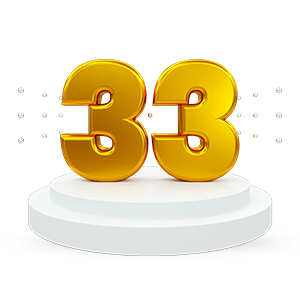Essential Safety Tips for Handling Propane Cylinders
Proper handling of propane cylinders is crucial to prevent accidents, protect property, and ensure long-term safety in both residential and commercial environments. Propane is a highly efficient fuel, but it is also a pressurized, flammable gas that requires respect and adherence to strict guidelines. This guide expands on secure storage, leak detection, valve handling, transportation, and compliance with German and European safety standards to provide a comprehensive reference for safe propane usage.
1. Secure Storage
-
Keep Upright
Always store propane cylinders in an upright position. Storing them on their side increases the risk of liquid propane escaping through the valve, which can cause dangerous vapor clouds. -
Ventilation is Critical
Propane is heavier than air and can collect at ground level. Therefore, cylinders must never be stored indoors in basements, small storage rooms, or enclosed garages without proper ventilation. Outdoor storage areas with protective roofing are ideal. -
Temperature Control
Avoid exposure to direct sunlight for long periods. Cylinders should be stored in shaded areas, ideally between –20°C and +50°C. Exceeding these limits can cause an increase in internal pressure and activate the pressure relief valve. -
Safe Distance
According to German TRF (Technische Regeln Flüssiggas) guidelines, propane cylinders should be kept at least 1.5 meters away from ignition sources such as open flames, grills, or electrical equipment.
2. Leak Detection
-
Soapy Water Test
Mix soap and water in a spray bottle and apply to valve connections, regulators, and hoses. If bubbles form, this indicates a leak. This simple test is recommended every time a new connection is made. -
Odor Awareness
Propane is naturally odorless, but an odorant called ethyl mercaptan is added to make leaks detectable. If you smell rotten eggs, immediately investigate and ventilate the area. -
Immediate Action
-
Shut off the cylinder valve.
-
Remove the cylinder from potential ignition sources.
-
Ventilate the area thoroughly.
-
Contact a certified technician or your propane supplier for professional inspection.
-
-
Never Use Flames to Test Leaks
Using a match or lighter to test for leaks is extremely dangerous and strictly prohibited under EU safety standards.
3. Valve Handling
-
Open Slowly
Always open the cylinder valve slowly. A sudden surge in pressure can damage regulators or appliances, leading to unsafe conditions. -
Close When Not in Use
After use, shut the valve completely to prevent unintentional leaks. This is particularly important for seasonal use (e.g., gas grills or patio heaters). -
Use Approved Regulators
Only use regulators and hoses designed and certified for propane use. In Germany, regulators must comply with DIN EN 16129 standards. Expired or damaged regulators should be replaced immediately. -
Check for Damage
Inspect valves regularly for rust, cracks, or debris. If the protective cap is missing or the valve shows visible damage, the cylinder should not be used.
4. Transport Safety
-
Secure During Transit
Cylinders must always be transported upright and firmly secured with straps or stands to prevent rolling or tipping. -
Ventilated Vehicles Only
Never transport propane cylinders in sealed trunks or enclosed vehicles. Use open-bed vehicles or well-ventilated compartments. -
Transport Limits
According to ADR regulations (European Agreement concerning the International Carriage of Dangerous Goods by Road), private individuals may transport up to 333 liters of propane (approx. 133 kg) without requiring special documentation. Commercial transport requires full ADR compliance. -
Protective Caps On
Always install the protective valve cap during transportation to avoid accidental damage.
5. Compliance with German & European Standards
-
DIN & EN Standards
Propane cylinders in Germany must comply with DIN EN 1442 (design, construction, and testing requirements for refillable steel cylinders). -
Periodic Testing
Cylinders must undergo inspection and requalification every 10 years by an authorized inspection body (Prüfgesellschaft). The test date is stamped on the cylinder collar. -
CE Marking
Only cylinders with CE marking are legal for use in the EU, as they demonstrate conformity with European safety standards. -
German TRF Guidelines
The TRF provides comprehensive rules for the installation and use of LPG (liquefied petroleum gas) in Germany, including cylinder storage, connections, and indoor usage limitations.
Conclusion
Safe handling of propane cylinders is not optional—it is a legal and moral responsibility. By following proper storage practices, performing regular leak checks, handling valves with care, ensuring safe transport, and complying with German and EU standards, you protect not only yourself but also your family, employees, and property.
Propane offers unmatched versatility and efficiency as a fuel, but only when handled with full respect for safety. Whether you are a homeowner using a small 5 kg cylinder for grilling, or a commercial user managing multiple 33 kg cylinders, these best practices will ensure reliable, long-term, and hazard-free operation.







No comment